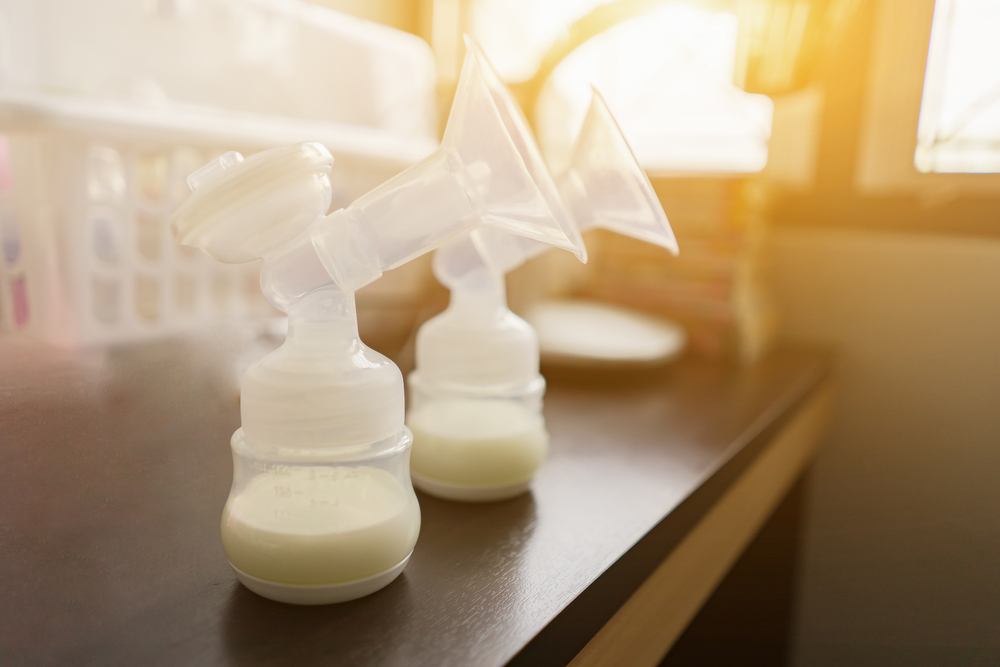
It's a question every new mother gets asked: Breast or bottle? But for an ever-growing group of mothers, the answer is a resounding "Yes."
Exclusive pumping is the practice of hooking up to the breast pump and bottlefeeding the milk to our hungry babes instead of nursing. The idea is gaining currency with mothers who can't or don't nurse, but who still want their little ones to get the benefits of breast milk.
"With exclusive pumping you're still getting a lot of the vitamins and immunological protections for the baby," said Marianne Pastore, coordinator of the lactation program at Massachusetts General Hospital. "I commend the mother who is committed to get her baby breast milk in some form."
Interested in exclusively pumping breast milk? Here's what you should know, plus advice from real mothers on how to succeed:
Exclusively pumping is hard. Really, really hard.
Not to scare you, but exclusive pumping can be physically challenging. At the beginning, while you establish your milk supply, you can feel chained to the equipment as you pump eight, 10, even 12 times a day. Your breasts absolutely will hurt. Then there is all the washing: pump bottles, feeding bottles, pump parts.
And for mothers who had hoped to nurse, it can also be emotionally difficult to accept the change in plan. "To not be able to nurse—I felt like something was wrong with me," said Lindsey Glasnepp of Seattle, who pumped for 10 months when her first baby wouldn't latch.
But it does get easier.
You will develop a rhythm and learn the time-saving tricks (incredibly useful example: store your breast pump parts in a plastic bag in the fridge between sessions and wash them just once a day). It gets so much better.
"If you can make it through the first couple of weeks it almost becomes second nature," said Sarah Gagnon, a Boston-area mom who turned to pumping when her daughter wouldn't latch. "You get into a groove."
People are going to stare — and ask questions.
Exclusive pumping is just not a well-known practice — relatives, other mothers, and even doctors have seemed confused when I explained how I was feeding my baby. Lindsay Grenert, a mother from outside Dallas, turned to exclusive pumping when she learned her daughter would be born with a cleft lip and palate, which would prevent her from nursing. She had a chance to research the practice, but noted how little discussion there was about the option.
"It would be nice for there to be more information about it and for it to be talked about more," she said.
Start by setting up \”pumping stations.\”
If you're going to commit to the process, configure your environment to maximize your chances of success. Gagnon has three "pumping stations" — one in her bedroom, one in her living room, and one in her car — each with its own equipment. "I've never had to pack a pump or move a pump," she said.
Partners should get in on the fun.
When you're nursing, it is simply a biological necessity that you get up to feed the baby in the middle of the night. But when your fridge is full of breast milk, your partner can also answer those 2 a.m. cries, letting him bond with your little one and giving you an extra hour or two of precious sleep.
Bottlefeeding offers bonding time, too.
When I gave up on my hopes of nursing my daughter, I mourned the connection I felt during our few successful sessions at the breast. But bottlefeeding can still offer opportunities to bond. Remember that you are still nourishing your beloved baby and spending peaceful time with her warm body in your arms.
"I never felt like I was missing out on anything," Gagnon said. "I still got to feed her — we still cuddled."
The freedom will feel good — embrace it!
Exclusive pumping means you don't always have to be within arm's length of your baby in case he gets hungry. So take advantage, for your mental and physical health. Leave a bottle with a grandparent or babysitter and take a walk or reconnect with your partner over dinner.
"A month after my daughter was born I went to the gym," Glasnepp said. She's nursing her second baby now, but said that, the first time around, "I had a lot more flexibility and independence."
You\’re allowed to stop when you\’re ready. Period.
There may come a time when you decide to supplement with formula or to quit pumping entirely — and that is absolutely fine. Gagnon started weaning off the pump at six months, when she had frozen enough milk to feed her daughter until she turns 1. For Grenert, the moment came when she reached her original goal of pumping until her daughter's surgery and realized that she was losing out on time with her other two children.
"People just need to cut themselves some slack," she said. "In the end, every bottle of breast milk I was able to give her was a success and certainly a major labor of love."

